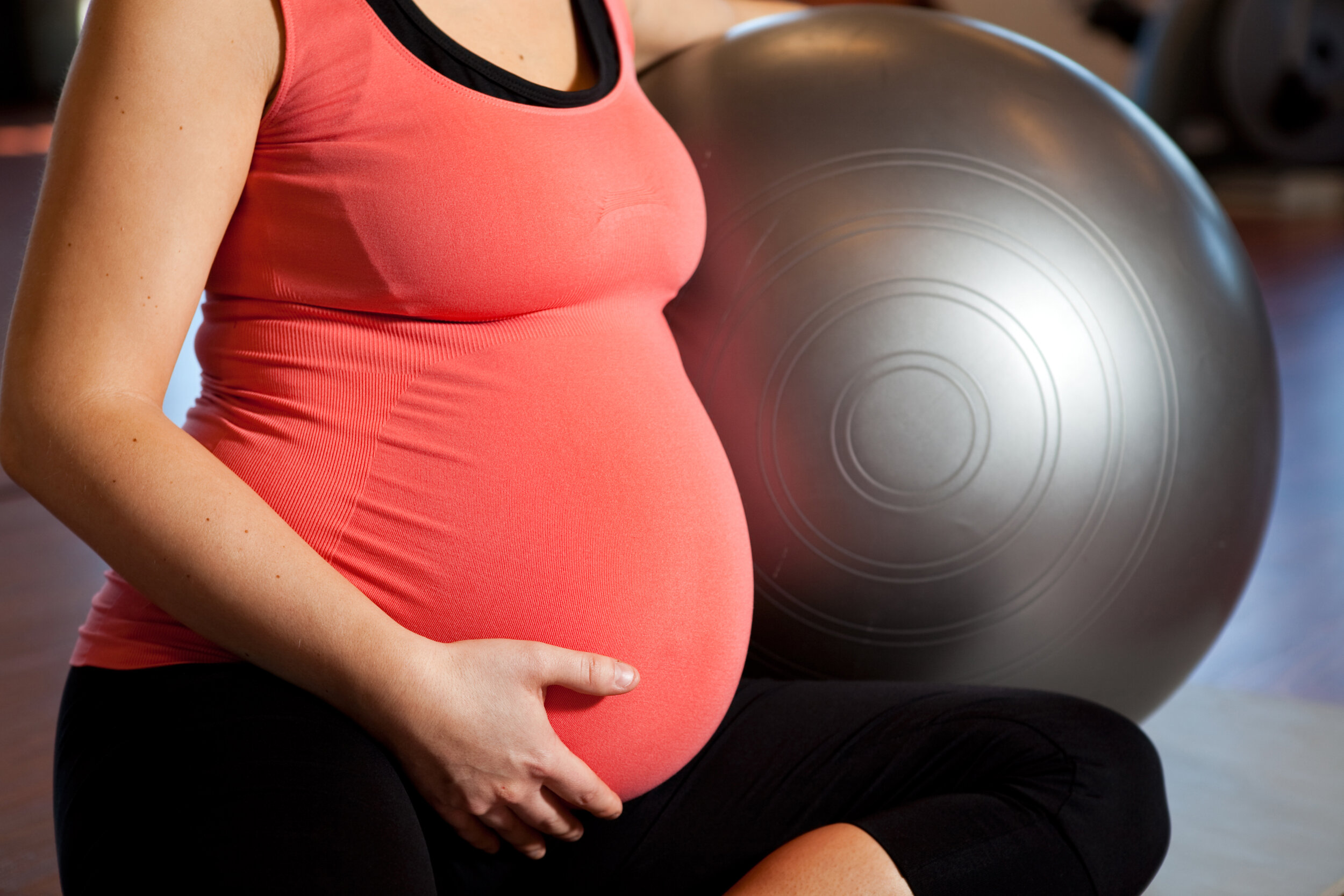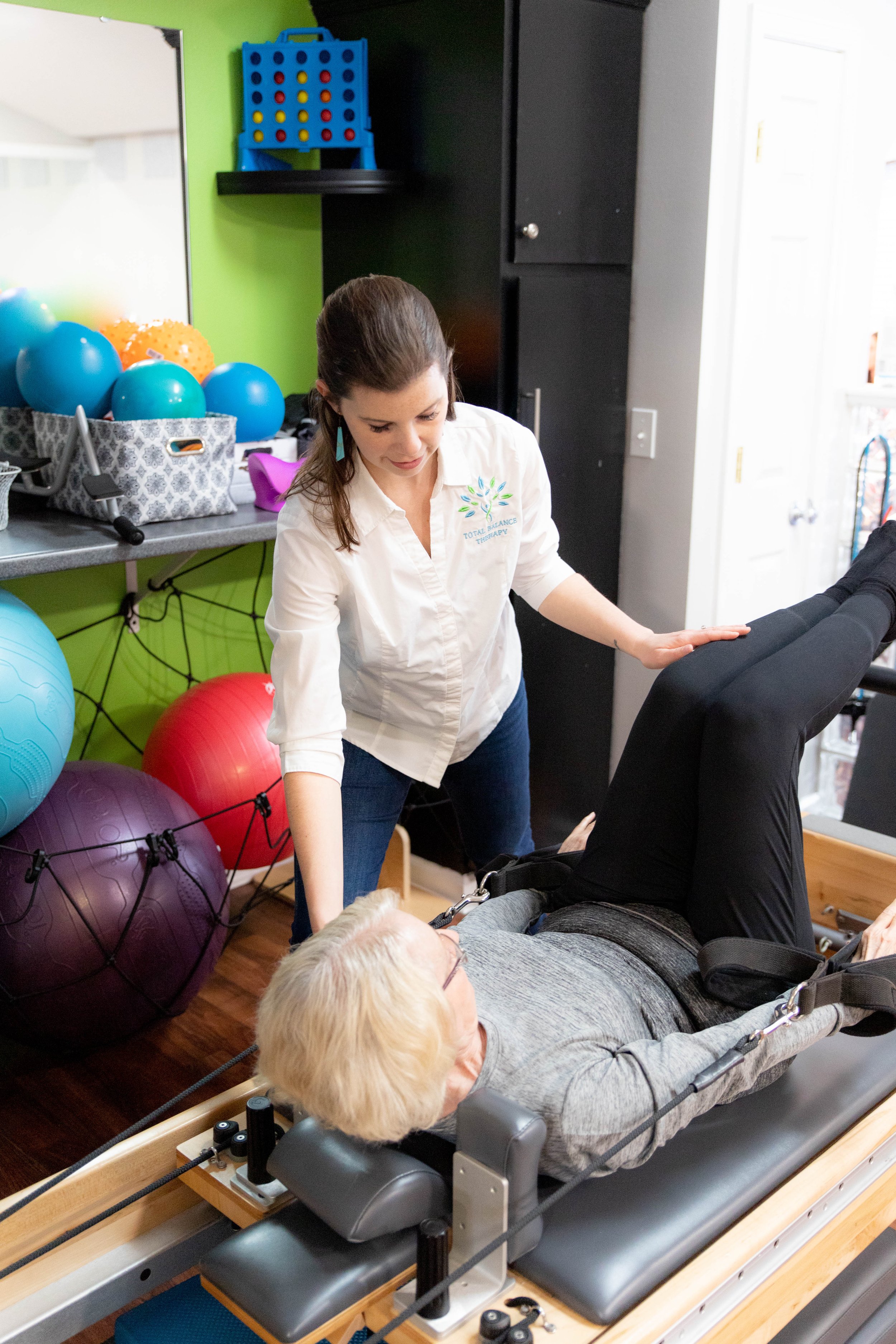Services
Pelvic floor physical therapy
The pelvic floor consists of the muscles, ligaments, nerves, blood vessels, and organs contained in and around the bony pelvis. This region functions to stabilize the spine and lower body, support the pelvic organs, control the emptying of the bladder and bowel, and initiate and maintain sexual function.
Pelvic floor dysfunction includes urinary and fecal incontinence, pelvic organ prolapse, abnormality of lower urinary tract, sexual dysfunction, chronic pain syndromes, coccyx pain, sciatic nerve pain, constipation, and lower abdominal pain.
Kegel weights to strengthen underactive
pelvic floor muscles
Underactive Pelvic Floor
The muscles of the pelvic floor may become weakened, resulting in incontinence or pelvic organ prolapse. Symptoms of an underactive pelvic floor may include urinary leakage with coughing, sneezing, or prolonged standing, failure to reach the bathroom in time, or using the bathroom more than eight times per day.
Overactive Pelvic Floor
Tissues in pelvic region may also have increased tone or become tightened, which can lead to difficulty emptying bladder or bowel, pain with daily activities, or discomfort during sexual intercourse. Often, there is associated
dysfunction of the spine, sacroiliac joints,
and lower extremities.
pregnancy & postpartum Care
The miracle of pregnancy and child birth brings about many changes in a woman’s body, including postural changes, stress on the musculoskeletal system, and increased weight on the lower abdomen and pelvic floor. As a result, pain in the low back or pelvis, urinary incontinence, or separation of the abdominals may occur.
In the postpartum phase, hormonal changes, lifestyle adjustments, and external demands such as carrying the baby and return to work may delay necessary healing.
With the majority of women experiencing some level of pain or dysfunction during pregnancy or postpartum, focused physical therapy treatment allows for improved ability to resume exercise and daily activities.
We offer Labor & Delivery sessions for patients and non-patients to learn positions for labor and delivery with and without an epidural, pain-relief techniques, postpartum expectations and management, and instructions on return to exercise and/or therapy postpartum.
orthopedic rehabilitation
Physical therapists assess the anatomy, physiology, and function of the neuromuscular and fascial support structures of the human body. Traditional physical therapy care incorporates strength, coordination, and function of the whole body following injury, surgery, or decline in medical status. Regardless of the diagnosis or body part involved, therapy aims to meet the patient’s personal goals, provide education on strategies to maintain progress and avoid future injury, and obtain a high level of function in order to perform daily or recreational tasks.
titleist performance institute program
“TPI does not believe in one way to swing a club, rather in an infinite number of swing styles. But, we do believe there is one efficient way for every player to swing and it is based on what the player can physically do.”
To achieve an efficient swing, a golfer must first be screened to identify physical limitations that may be affecting the golf swing. Our TPI-certified physical therapists offer personal physical screens and golf-specific prescription exercise programs to achieve mobility goals to enhance your golf performance.
The full program includes:
TPI Physical Screen - used to develop a Personal Fitness Handicap and rank how likely movement impairments will affect the golf swing
Swing Characteristic Screen - identifies swing characteristic present for customized routine development
TPI Body-Swing Prediction - predicts what your swing will look like based on results from physical screen through the TPI body-swing connection software
Personalized exercise routines - generalized and golf-specific exercises developed based on your movement impairments
Individualized, hands-on physical therapy treatments - manual therapy, modalities, and use of therapy equipment to progress your exercises in clinic and enhance your program performance
Exclusive access to the MyTPI app for program tracking - access to personalized routines for exercise and golf drills
Our TPI-certified therapists have received TPI Medical and Fitness training to assess injury-inducing mechanics, include fitness and power screening, and provide education on injury prevention.
pilates & Group Exercise
Pilates is a type of mind-body activity using a mat or a variety of equipment that is based on the six principles of Joseph Pilates: breath, concentration, centering, control, precision, and flow. With focused movements, Pilates promotes strength, stability, and flexibility of the entire body. It is a perfect compliment to skilled physical therapy treatment because it is safe, unique, and utilizes increased mindfulness to decrease stress, increase awareness, and improve overall fitness and function.
Private Pilates sessions focus on use of equipment to promote optimal movement and full-body strengthening.
Mat Pilates classes consist of floor exercises using props such as weights, Pilates ring, and elastic bands for increased intensity.
Group exercise classes are offered using principles of Pilates and knowledge of therapeutic exercises to improve overall fitness. Pilates & group exercise classes are now provided at The Studio Crossville!









